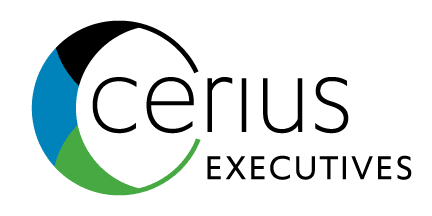Cerius QBU: Focus on Executive Leadership – Matthew Wetty

Every quarter, we’ll present insights from top executives from different backgrounds and functions. For Q2, we gathered insights from four business leaders— experts in executive leadership, nonprofit organizations, human capital and technology—to help you prepare for the next quarter. Here are insights on Executive Leadership from Matthew Wetty.
As we move into recovery from the global pandemic, one of the biggest challenges facing business is shifting from a defensive to offensive posture. Most businesses suffered negative financial consequences during the past year and had to rapidly shift their strategy into survival mode. During this period, many prioritized preservation of capital, cost cutting and maximizing credit as the highest priority. As the world starts to return to a more normal environment, a highly focused strategy will be required to break out of the pandemic mindset. Many employees will be understandably hesitant to move back to a more normal operating environment. For those businesses that survived financially, an opportunity now exists to take competitive advantage and grow revenue and market share within their space. A strategy to make this transition will be critical. Although the path forward may not be a straight line back to pre-pandemic norms, a well thought-out plan executed by key business leaders will make all the difference.
What are a few best practices to help leaders overcome the current challenges? What do you see working well?
Some of the best practices include: (a) detailed operating plans with milestones; (b) clear development strategies (e.g., M&A); and (c) realistic goals in terms of revenue and profit growth. Companies that are aligned on these types of detailed plans will be able to adjust key decisions such as hiring/re-hiring, potential acquisitions, or key internal investments as they arise. Carefully monitoring gross profit margins will also be critical to ensure products and services are optimized from a pricing perspective. There will likely be growing inflationary pressure as the recovery unfolds and keeping an offensive posture on pricing will be critical to maximize margins. Customer outreach and clear sales objectives will also help drive growth.
Are there any strategies you view to be ineffective?
High-level strategies must be in sync with realistic operating plans. Leaders that set high-level goals but don’t have either the cash from operations or capital to fund growth will not be able to realize the end goal. It’s critical that key senior and middle management are on board with the plan. Compensation structures should also be aligned with clear upside potential to drive everyone in the same direction.
What skillsets do leaders need to navigate through these challenges?
Patience and willingness to accept operating changes will be critical. Many businesses had to make significant operating adjustments during the pandemic to survive. Many were forced to find new ways to operate (remote working for example). Leaders should listen to their teams to determine which changes should continue
post pandemic. Leaders should also be mindful of work-life balance within organizations after extended periods of leaning on teams to “get through.” After being locked down, employees will understandably want to take time away. Recognition by leaders of the need to return to a normalized work-life balance post- pandemic will help drive a positive culture and help keep teams motivated for the long haul.
ABOUT MATTHEW WETTY
Matthew Wetty is a financial executive with over 25 years of progressive experience including the CFO of multiple middle market businesses. He has extensive experience working with private equity sponsors and portfolio senior management including post acquisition integration. He has a BSBA in accounting from Bucknell University and spent the early part of his career within the NY audit practice for PwC.

